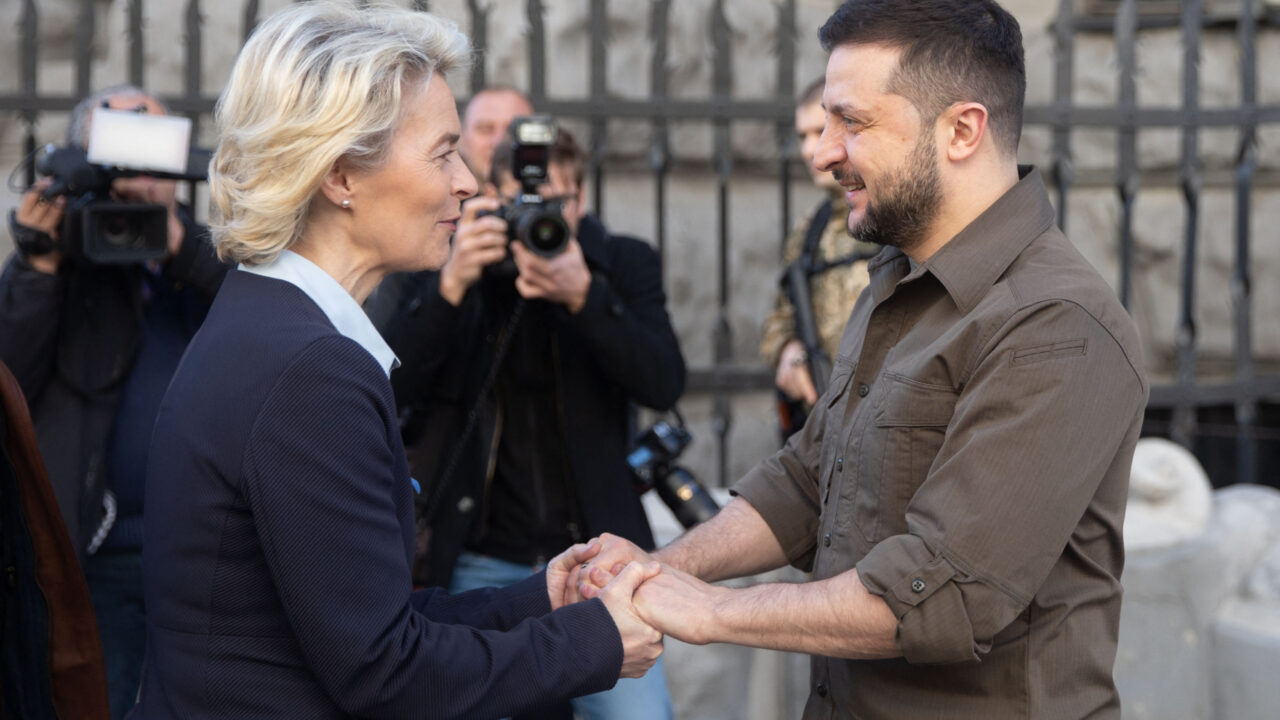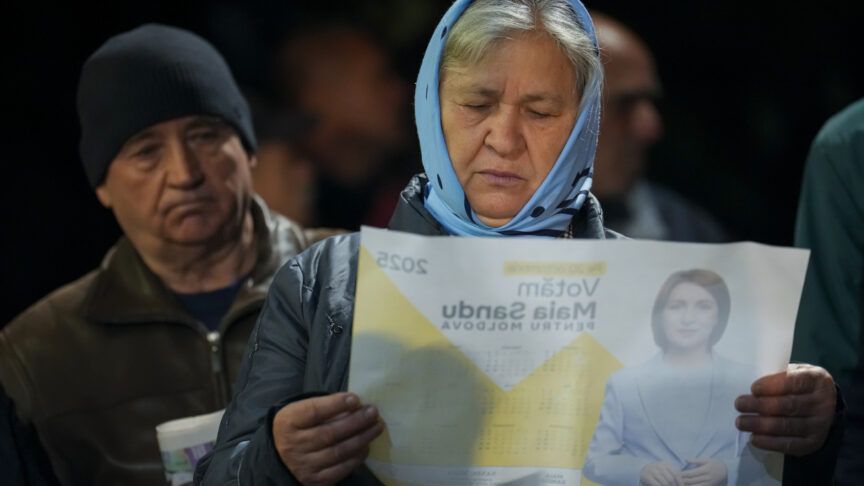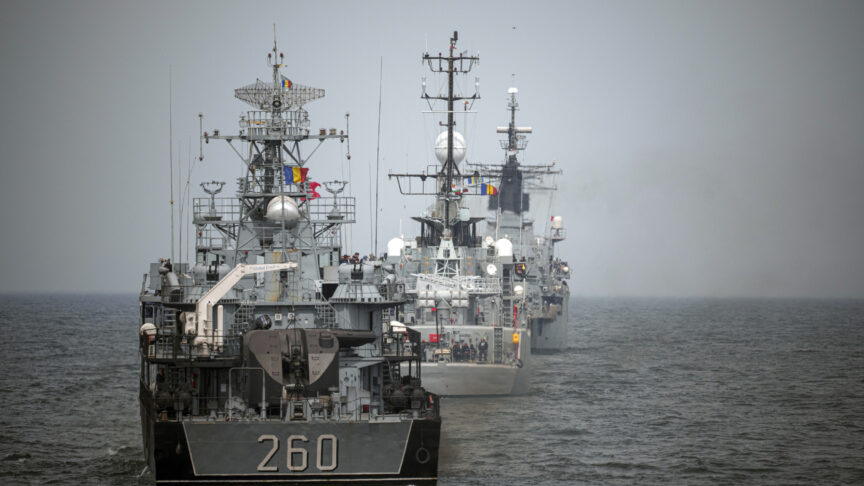All-out support: The West’s commitments to Ukraine
Ukraine’s Western partners now recognise that it can defeat Russia. Yet they need to provide the guarantees of long-term support that will make this a reality
Despite Russia’s lack of convincing military successes in Ukraine, President Vladimir Putin still believes he can win his war on the country – even if this involves years of conflict. Russian forces’ current focus on Donetsk and Luhansk may seem to suggest that he has abandoned his goal of conquering all Ukrainian territory, but this is not the case. He can sell the occupation of Donbas to a domestic audience as a kind of victory and even agree to hold peace talks with Ukraine after that. However, this would only be an intermediate stage in his quest to control Ukraine. Therefore, Russia will continue to attack the country for so long as it has the military and economic resources to do so. And it may be capable of sustaining the campaign for several years.
The only thing that can stop Putin from continuing the war and expanding it to other European countries is a military defeat in Ukraine. This is no longer an unimaginable outcome: during almost three months of war, the Russian military has had only limited success in southern and eastern Ukraine, but has incurred substantial losses of manpower and equipment. Under pressure from the Ukrainian army, it has been forced to retreat from Kyiv and other parts of the north. In recent weeks, the army has conducted a successful counteroffensive near Kharkiv. Many Ukrainian and foreign experts and officials predict that, with sufficient military and economic support, Ukraine will be victorious.
There is little doubt that Western countries’ gradually increasing military, economic, and humanitarian assistance has been an important part of Ukraine’s success. But it is now time for them to finally believe that Ukraine can achieve victory without conceding its sovereignty or any of its territory to Russia. Ukraine will need to defeat Putin if there is to be a sustainable peace in Europe. Russia’s military aggression in Georgia, Moldova, Syria, and Ukraine has shown the folly of attempts to placate Putin with concessions. Accordingly, the West’s new approach to addressing the threat from Russia should involve the following measures.
Military support.NATO countries have almost run out of Soviet-designed military equipment that they can provide to Ukraine. Therefore, they should supply the Ukrainian army with Western-made equipment and the training to use it as soon as possible. Luckily, the Ukraine Democracy Defense Lend-Lease Act recently signed by US President Joe Biden creates many opportunities for such support.
During the few years in which Russia will have the resources to sustain its war on Ukraine, the Ukrainian army will need to switch to using the armaments of NATO countries – many of which are technically superior to their Russian counterparts. Ukraine is already receiving the long-range artillery it so desperately needs, including American M777 howitzers and HIMARS M142 multiple launch rocket systems. The next step should be to supply modern air defence systems (such as the American Patriot or the Norwegian NASAMS), fighters (such as the American F-16 or F-15, or the European-made Eurofighter Typhoon), unmanned aerial vehicles (such as the American MQ-9 Reaper), and tanks (such as the American M1 Abrams, the British Challenger 2, the French Leclerc, or the German Leopard 2). If a few weeks ago Ukrainians could have only seen such weapons in their dreams, the US lend-lease act could make this a reality – by removing many restrictions on the supply of American military equipment.
Political support. The European Union should grant Ukraine candidate status in June, when it is scheduled to issue a preliminary opinion on the issue. In the last few years, Ukraine has implemented a record number of reforms and has fulfilled 63 per cent of its obligations under its Association Agreement with the EU. Moreover, by some measures, Ukraine is already ahead of several EU member states. For example, Ukraine has made decisive steps towards digitalisation and has become the first country to grant equal status to electronic documents and traditional ones – an initiative that has become especially important during the war, as many citizens have lost access to paper documents.
One should remember that the EU would benefit from Ukrainian membership. Economically, Ukraine can provide labour at a relatively low cost and efficient logistics for reshoring production, allowing the EU economy to become more competitive. While the EU has a competitive advantage in the production of capital goods, Ukraine specialises in the production of raw materials and intermediate goods. In this sense, the two economies are complementary.
The EU may constantly invoke European values, but Ukraine has actually fought for them
Ukraine is also the key to post-war European security. The country has far exceeded expectations in withstanding the Russian military offensive. It now has the most experienced army in Europe, which could help the EU defend its borders. The novel military tactics used by the Ukrainian army have mesmerised its international supporters. However, as those tactics heavily rely on Western intelligence and weapons, it is crucial that this support continues.
The EU may constantly invoke European values, but Ukraine has actually fought for them. Indeed, the country has made great sacrifices in the name of those values. In international relations, appeals to morality rarely have much effect. But, if European values genuinely matter to the EU as Brussels declares, it should support Ukraine’s accession in the most efficient manner possible.
Economic support. Ukraine’s economic losses from Russian aggression already amount to more than $600 billion. To deal with the economic consequences of the war, Ukraine will need overwhelming international support comparable to that under the Marshall Plan. But such a plan will be impossible to implement unless there is a lasting peace – not just a ceasefire.
While the conflict rages on, world leaders should develop and implement a comprehensive plan of economic assistance for Ukraine. This should include not only cash payments to maintain macroeconomic stability but also investments in companies that are far from the front line – through measures such as cheap loans to Ukrainian entrepreneurs, approval of a proposal to suspend EU import duties on Ukrainian products, and increases in Ukraine’s trade quotas with the EU.
Increased economic pressure on Russia. The West should build on its attempts to suppress the Putin regime through economic means. According to Josep Borrell, the EU’s high representative for foreign affairs and security policy, the EU spends around €1 billion a day on Russian energy. At the same time, Russia spends almost €860m a day on the war. Therefore, a full embargo on imports of Russian energy would be the EU’s most significant step towards halting Russian aggression to date. The union has the capacity to do this while managing the consequences for the economies of its member states.
Another important step is to intensify sanctions on Russia. All Russian banks should be excluded from SWIFT, all Russian ships should be banned from entering Western ports, and any Western company operating in Russia should pay additional taxes at home. Doing business in Russia should not only be politically toxic (as it is now) but also unprofitable.
Ukraine’s partners, including the NATO leadership, have already recognised that it can win this war. However, they will need to support the country for as long as Putin draws out the conflict. Russia has greater military and economic resources than Ukraine. But it cannot compete with the resources of the West, especially while burdened with heavy sanctions. By providing guarantees of long-term support to Ukraine, the West would bring victory for the country – and for itself – that much closer.
Margaryta Khvostova, Olga Lymar, and Denys Davydenko are members of the Reanimation Package of Reforms Coalition, a leading coalition of 26 Ukrainian NGOs created after the 2014 Revolution of Dignity. The fourth author of this commentary cannot be named for security reasons.
The European Council on Foreign Relations does not take collective positions. ECFR publications only represent the views of their individual authors.



